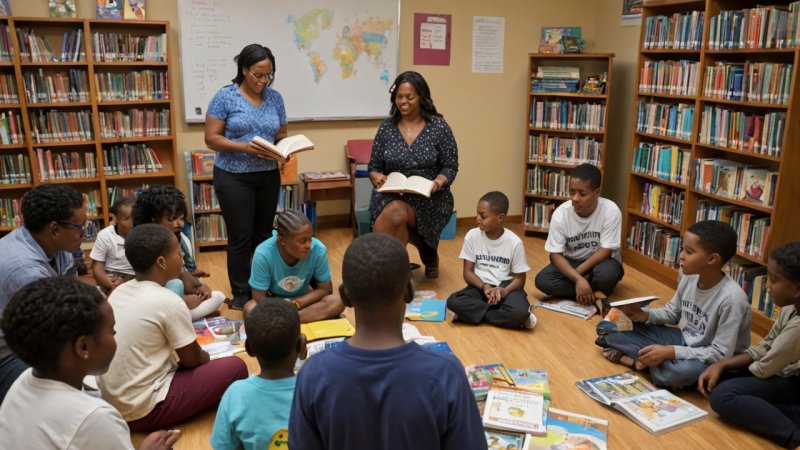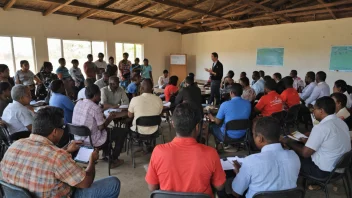What is literacy advocacy?
Literacy advocacy involves promoting the importance of reading and writing skills in individuals and communities. It aims to ensure that everyone has access to quality literacy education, which is essential for personal development and societal progress.
Why is research important in literacy advocacy?
Research provides evidence on the current state of literacy, identifies gaps in education, and helps to develop effective strategies for improvement. It informs policymakers and educators about what works and what doesn’t, guiding resources toward effective literacy programs.
How does data impact literacy programs?
Data helps to measure the effectiveness of literacy programs by tracking progress and outcomes. It allows organizations to assess the needs of specific communities and tailor their programs accordingly. By analyzing data, advocates can make informed decisions that lead to better educational practices.
What types of research are most relevant to literacy advocacy?
- Quantitative Research: This includes surveys and assessments that provide numerical data on literacy rates and trends.
- Qualitative Research: This involves interviews and case studies that explore individual experiences with literacy education.
- Longitudinal Studies: These studies track literacy development over time, providing insights into long-term outcomes of educational interventions.
How can individuals get involved in literacy advocacy?
Individuals can contribute to literacy advocacy by:
- Volunteering with local literacy organizations.
- Participating in community reading programs.
- Advocating for policies that support literacy education in schools.
- Sharing research findings with others to raise awareness about literacy issues.
What are some successful literacy advocacy initiatives?
Several initiatives have made significant impacts in literacy advocacy, including:
- Reading Recovery: A program designed to help struggling first-grade readers through one-on-one instruction.
- Literacy for All: An initiative aimed at promoting inclusive literacy education for individuals with disabilities.
- Global Book Alliance: A worldwide effort to provide books and educational resources to children in need.
What global issues are currently affecting literacy rates?
Several pressing global issues impact literacy rates, including:
- Poverty: Children in low-income families often lack access to quality education and resources.
- Conflict and Displacement: War and instability disrupt education systems, leaving many children without schooling.
- Technological Barriers: Limited access to technology can hinder learning opportunities, especially in rural areas.
How can data-driven advocacy make a difference?
Data-driven advocacy empowers stakeholders to make informed decisions, allocate resources effectively, and create targeted literacy programs. By presenting compelling data, advocates can influence policymakers and engage the community in supporting literacy initiatives.
What role do educators play in literacy advocacy?
Educators are at the forefront of literacy advocacy. They implement research-backed strategies in the classroom, assess student needs, and advocate for necessary resources and policies to support literacy development. Their insights and experiences are invaluable in shaping effective literacy programs.
How can I stay updated on literacy advocacy efforts?
Staying informed about literacy advocacy can be done through:
- Following organizations dedicated to literacy on social media.
- Subscribing to newsletters from educational institutions and advocacy groups.
- Attending webinars and conferences focused on literacy education.
In conclusion, research and data play a pivotal role in literacy advocacy. By understanding the current state of literacy and the factors affecting it, advocates can drive meaningful change in their communities. Everyone has a role to play in enhancing literacy, and informed action can lead to a brighter future for all.






